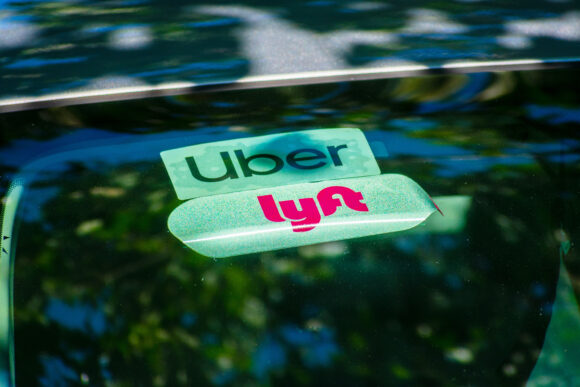Uber Technologies Inc. sued a group of lawyers, medical providers and rideshare drivers it claims staged car accidents, manufactured damages and received unnecessary medical procedures to take advantage of insurance policies in Florida, costing the rideshare giant “several million dollars” in legal fees.
Uber accused the group of conspiring to “generate an excuse to deliver unnecessary medical care, submit false insurance claims for recovery and file frivolous lawsuits to sue for non-existent damages” between 2023 and 2024. The five drivers named in the suit were “recruited with bribes to stage accidents,” Uber said in the federal suit filed Wednesday in south Florida. The group recruited claimants who took their cars to designated body shops to manufacture the “false impression that the accidents resulted in injury,” the company said.
“Although Uber’s investigation into the full extent of the scheme remains ongoing, Uber has uncovered several million dollars in defense costs and settlements directly resulting from this scheme,” it added.
The defendants named in the suit didn’t immediately respond to requests for comment.
This is the second racketeering Uber has filed this year as it pursues various means to deter personal injury lawyers and other bad actors from taking advantage of lucrative policies and seeking high payouts, it has said. In January, the company sued a group of law firms, doctors and clinics in New York for similar fraudulent practices. The company has also poured millions of dollars in to local and national ad campaigns this year to push for legislative reforms in insurance policies.
All of these initiatives, Uber has said, would help reduce mounting insurance costs, which it’s passed down to customers in the form of higher trip fares, contributing to a slowdown in the company’s US rideshare business.
Read More: Uber Targets Personal Injury Lawyers in Multimillion Dollar Ad Campaign
“Consumers ultimately are paying for fraudulent activity, and so we have an obligation to protect them,” said Adam Blinick, who oversees the firm’s public policy and communications in the US and Canada. “If we see something inappropriate on the platform then we will take appropriate steps to stop it, including pursuing civil RICO suits,” he added in an interview, referring to the US Racketeer Influenced and Corrupt Organizations Act.
The case is Uber v. Law Group of South Florida et al, 25-cv-22635-CMA, US District Court, Southern District of Florida.
Topics Florida Fraud Sharing Economy Ridesharing
Was this article valuable?
Here are more articles you may enjoy.



 What Analysts Are Saying About the 2026 P/C Insurance Market
What Analysts Are Saying About the 2026 P/C Insurance Market  AIG’s Zaffino: Outcomes From AI Use Went From ‘Aspirational’ to ‘Beyond Expectations’
AIG’s Zaffino: Outcomes From AI Use Went From ‘Aspirational’ to ‘Beyond Expectations’  Trump’s EPA Rollbacks Will Reverberate for ‘Decades’
Trump’s EPA Rollbacks Will Reverberate for ‘Decades’  Insurance Broker Stocks Sink as AI App Sparks Disruption Fears
Insurance Broker Stocks Sink as AI App Sparks Disruption Fears 

